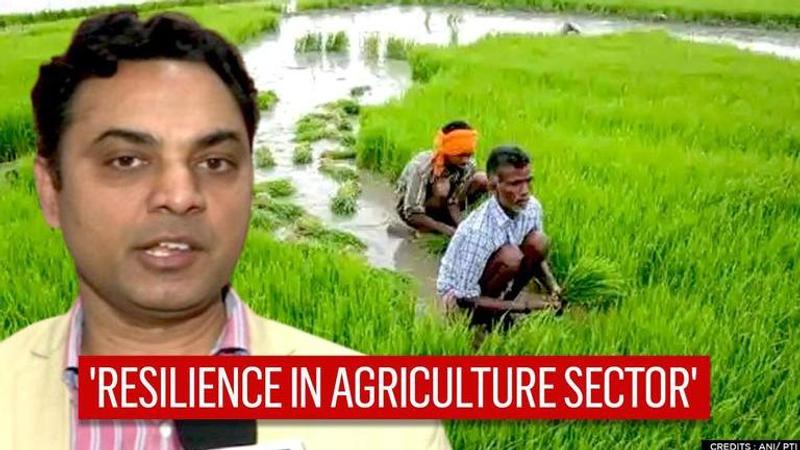Published 18:33 IST, January 29th 2021
Ringing endorsement for Farm Laws in Economic Survey 2020-21 even as protests continue
Tabled in the Parliament on Friday, the Economic Survey 2020-21 strongly endorsed the three farm laws amid the protest by farm unions at the Delhi borders.

Tabled in the Parliament on Friday, the Economic Survey 2020-21 strongly endorsed the three farm laws amid the ongoing protest by farm unions at the Delhi borders. In the chapter 'Agriculture & Food Management', Chief Economic Advisor KV Subramanian stressed that the agrarian reforms are catered for the benefit of the small and marginal farmers which constitutes around 85% of farmers. Maintaining that they are the biggest sufferers of the "regressive" APMC regulated market regime, he opined that the new era of "market freedom" can tremendously help in the improvement of farmer welfare. Moreover, the Survey listed several occasions in the past where the Centre was suggested to enact these reforms.
Benefits of the farm laws
The Farmers' Produce Trade and Commerce (Promotion and Facilitation) Act, 2020 aims at freeing the farmers from the constraints of the state Agriculture Produce Market Committees whereby they would be able to sell their produce anywhere. Meanwhile, The Farmers (Empowerment and Protection) Agreement of Price Assurance and Farm Services Act, 2020 protects and empowers farmers to engage with processors, wholesalers, large retailers, exporters for farm services. This entails the provision of contract farming.
The Essential Commodities (Amendment) Act, 2020 specifies that the supply of foodstuffs including cereals, pulses, potato, edible oilseeds, and oils shall be regulated only under exceptional circumstances. The CEC stated that factors such as the presence of multiple intermediaries, a large range of taxes and cesses and poor infrastructure of markets led to farmers getting a lower price for their produce. According to him, The Farmers (Empowerment and Protection) Agreement of Price Assurance and Farm Services Act, 2020 would transfer the risk of market unpredictability from the farmer to the sponsor and enable him to access modern technology and better inputs.
Assuring the farmers that their land will remain safe, the Economic Survey highlighted that the 10,000 Farmer Producer Organizations coming up in the country will bring together small farmers and ensure remunerative pricing for farm produce. Furthermore, it stated that The Essential Commodities (Amendment) Act, 2020 was also aimed at attracting the private sector and FDI into the agriculture sector which in turn can help the modernization of food supply chain. Overall, there is a focus on meeting the goal of doubling farmers' income. However, the SC has temporarily stayed the implementation of the farm laws to resolve the standoff between farmers and the Centre.
Positive signs for the agriculture sector
Subramanian appreciated the fact that agriculture and allied sectors showed resilience amid the coronavirus-induced crisis by clocking a growth rate of 3.4% at constant prices during 2020-21. The foodgrain production in 2019-20 was higher than the production of foodgrains in the previous fiscal year by 11.44 million tonnes. Additionally, India's agricultural and allied exports amounted to nearly Rs.2,52,000 crore as of 2019-20 with the major export destinations being the USA, Saudi Arabia, Iran, Nepal and Bangladesh. The Economic Survey also noted that the Centre increased the Minimum Support System for all mandated Kharif and Rabi crops for the 2020-21 season whereby the MSP was fixed at 1.5 times of the cost of production. It also threw light on the Centre's announcement for agriculture under the aegis of the Atmanirbhar Bharat Abhiyan.
Updated 18:33 IST, January 29th 2021








